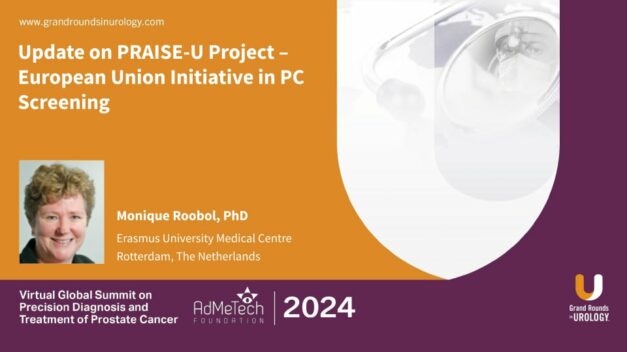Update on PRAISE-U Project – European Union Initiative in PC Screening
Monique Roobol, PhD, focuses on prostate cancer screening practices in Europe, highlighting recent developments, ongoing initiatives, and future prospects. In 2022, the European Union (EU) updated its cancer screening recommendations, formally including prostate cancer alongside breast, lung, colorectal, and gastric cancers, spurring momentum for organized prostate cancer screening initiatives across Europe.
In this 11-minute presentation, Dr. Roobol shares the PRAISE-U initiative, launched following the EU’s recommendations. This initiative seeks to pilot and evaluate risk-based screening strategies across all EU member countries, including Spain, Ireland, Lithuania, and Poland.
Read More




